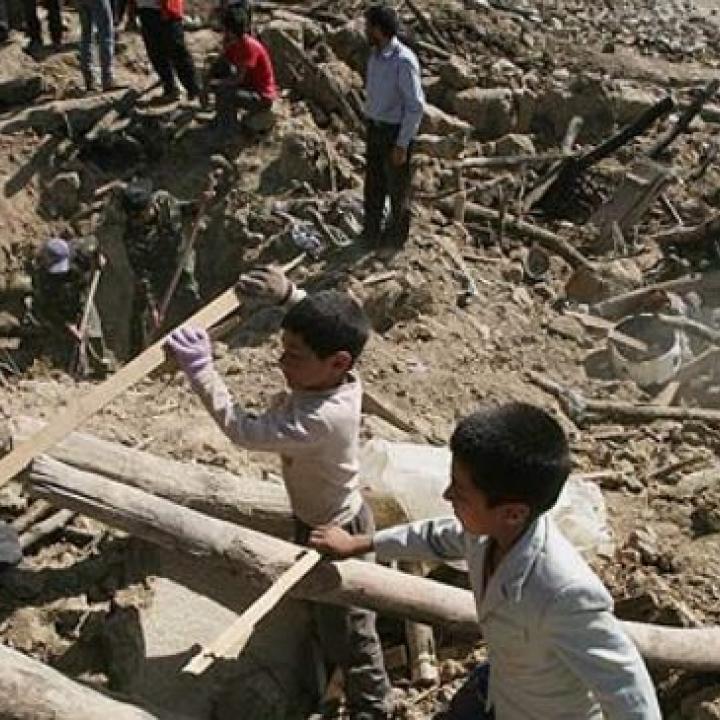
- Policy Analysis
- Policy Alert
Sharp Contrast between U.S. and Iranian Earthquake Responses

Shortly after Saturday's earthquake in Iran's East Azerbaijan province, the U.S. government issued a condolence statement that was notable for arriving a few hours before any comment on the matter by Supreme Leader Ali Khamenei. For his part, President Mahmoud Ahmadinejad has yet to issue a statement on the tragedy, and his cabinet's public message lacked specifics about what relief would be provided. No top Iranian official has traveled to the province to meet with residents who lost their family members or homes; instead, Ahmadinejad visited Saudi Arabia.
Similarly, the state media, especially radio and television outlets, have given little coverage to the quake, focusing on news about Syria and Ramadan rituals. BBC Persian TV, Voice of America TV, and various news websites have provided much more information about the situation than Iranian outlets.
Regime assistance to the province has been modest as well, and when the U.S. government offered outside disaster assistance, Tehran rejected it. Most efforts to aid the victims have been provided by people who traveled to the area without the regime's help. The central government's official toll is 306 dead and 150,000 homeless, but local officials and activists believe the numbers are much higher.
The province's parliamentary representatives have heavily criticized the state's inappropriate news coverage and inefficiency in rescuing people. Similarly, Iranian web chatter indicates widespread public anger toward the government, especially Khamenei and Ahmadinejad, with the perception being that they prefer to downplay the people's suffering while emphasizing confrontation with the West over Syria and the nuclear issue.
Washington's timely reaction to the tragedy and offer of assistance were important ways of showing sympathy for the Iranian people, and the contrast with Tehran's response speaks volumes. This is the sort of story that should be highlighted by Voice of America's Persian Service and the U.S. government-funded Radio Farda.
Mehdi Khalaji is a senior fellow at The Washington Institute.



